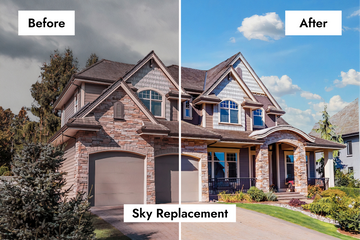Offering flexible cancellation policies on Airbnb is a strategic decision that can significantly enhance guest satisfaction and improve booking rates. As travelers increasingly prioritize flexibility due to unforeseen circumstances or changing travel plans, providing lenient cancellation options can make your property more attractive and competitive in the market.
The Importance of Flexibility
In today's travel landscape, flexibility is key. Guests often seek accommodations that allow them to cancel or modify their bookings without significant penalties. This demand has been amplified by recent global events, which have highlighted the importance of adaptable travel plans. By offering a flexible cancellation policy, you cater to this need, potentially increasing your booking volume and overall guest satisfaction.
Types of Flexible Cancellation Policies
Airbnb offers several tiers of cancellation policies, ranging from strict to super-flexible. Understanding these options can help you choose the best fit for your property:
-
Flexible: Guests can cancel up to 24 hours before check-in for a full refund, minus service fees. This is the most lenient policy and can attract last-minute bookings.
-
Moderate: Guests can cancel up to 5 days before check-in for a full refund, minus service fees. This offers a balance between flexibility for the guest and some security for the host.
-
Strict: Guests receive a full refund if they cancel within 48 hours of booking and at least 14 days before check-in. If they cancel within 7 days of check-in, they get a 50% refund. This policy provides more security for hosts but may deter some potential guests.
Benefits of Offering a Flexible Policy
-
Increased Bookings: Properties with flexible policies often see higher booking rates. Travelers are more likely to book when they know they have the option to cancel without losing a significant amount of money.
-
Improved Guest Satisfaction: Guests appreciate the peace of mind that comes with knowing they can cancel or change their plans without hassle. This can lead to positive reviews and repeat bookings.
-
Competitive Advantage: In a crowded market, a flexible cancellation policy can set your listing apart from others with stricter terms. This can be particularly beneficial in attracting international travelers or those booking for special occasions.
-
Adaptability to Market Changes: A flexible policy allows your property to adapt quickly to changes in travel trends or external factors, such as new travel restrictions or economic shifts.
Considerations for Hosts
While offering a flexible cancellation policy has many benefits, it’s essential to consider the potential downsides. For instance, you may experience a higher rate of cancellations, which could lead to gaps in your booking calendar. To mitigate this, consider adjusting your pricing strategy to account for the increased flexibility. Additionally, you can implement minimum stay requirements or offer discounts for longer stays to ensure a steady flow of bookings.
Conclusion
Incorporating a flexible cancellation policy into your Airbnb listing is a proactive approach to meeting the evolving needs of travelers. By doing so, you not only enhance the appeal of your property but also position yourself as a considerate and adaptable host. Ultimately, this flexibility can lead to increased bookings, greater guest satisfaction, and long-term success on the platform.





















